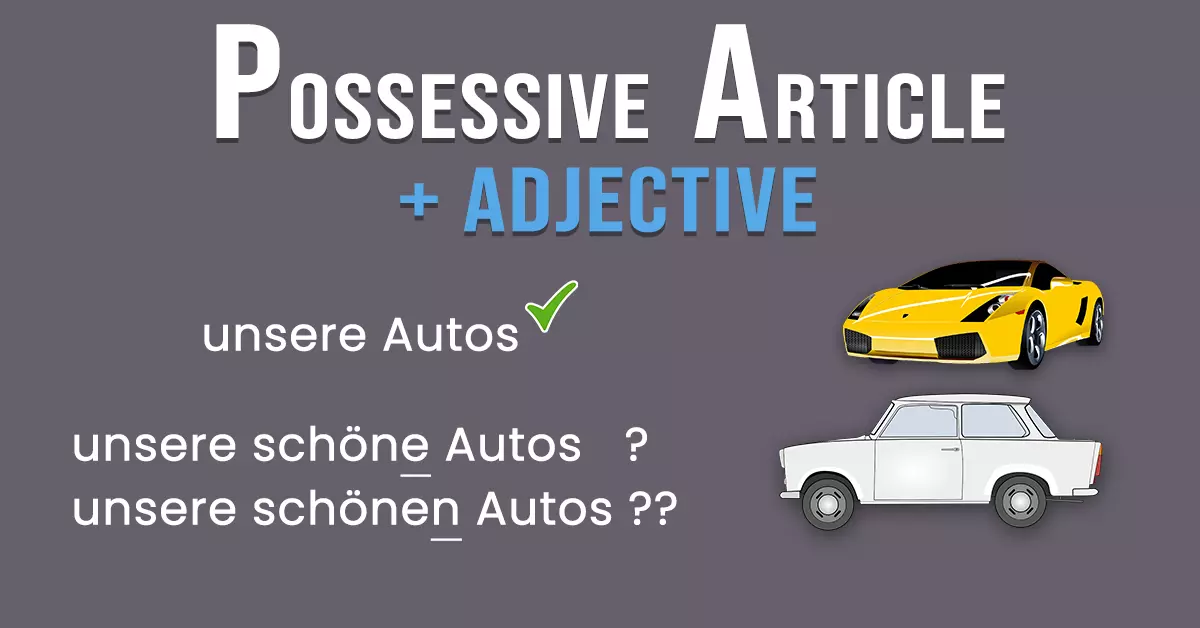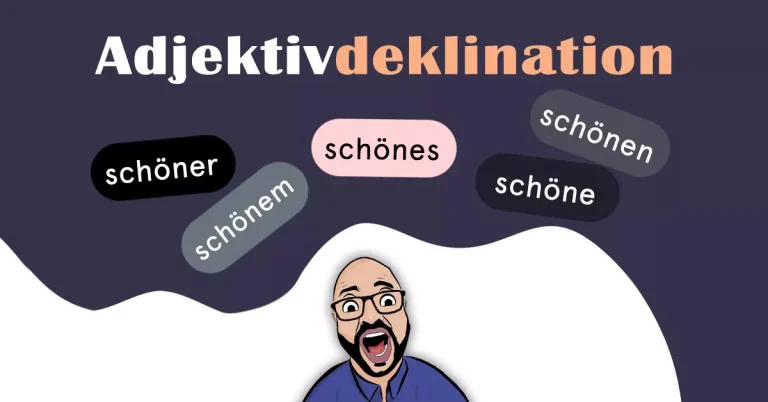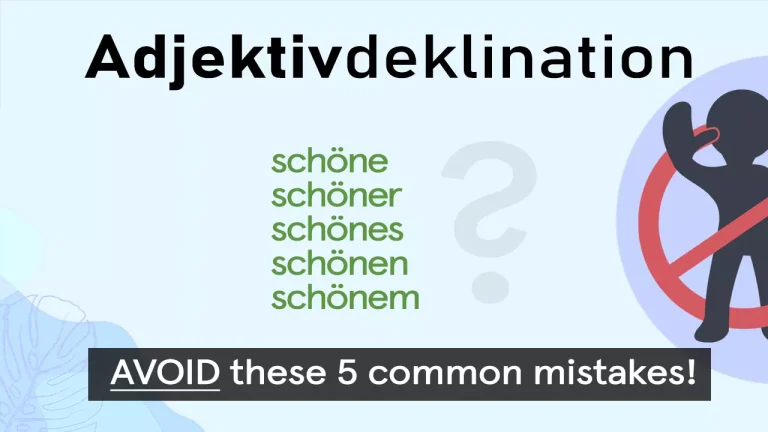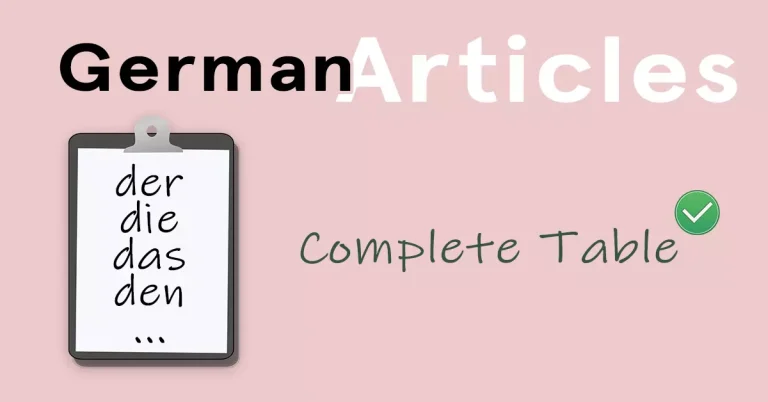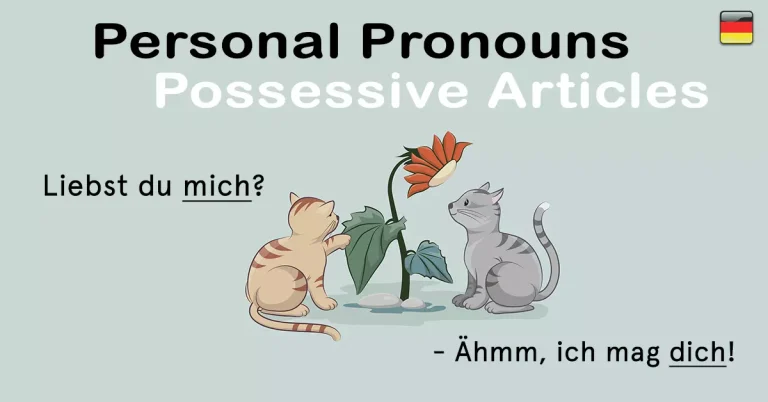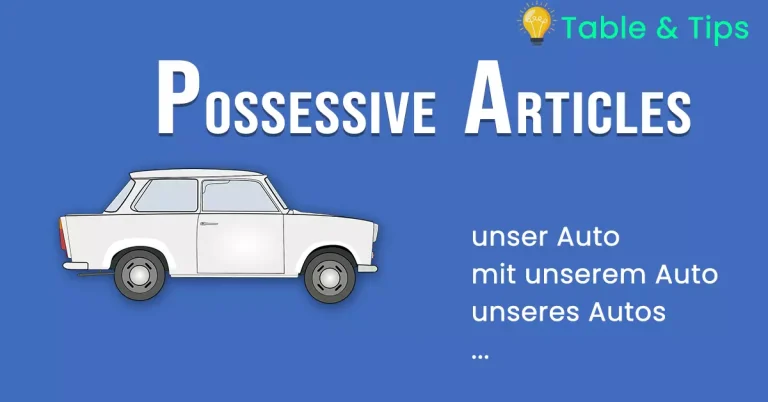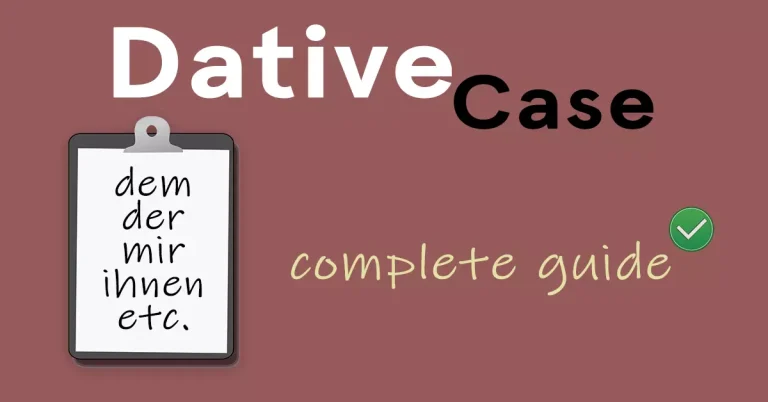Meine schöne/schönen Bücher? Which one is correct? German learners at all levels get this wrong. What adjective endings do we need to give adjectives after the possessive articles (e.g. mein)? The strong endings, just like with the indefinite articles? Or the weak endings, like with the definite articles? You will not like the answer: It depends!
Don’t worry though, it’s pretty easy and you’ll understand the idea behind it after reading this article!
We will analyze the adjective endings after possessive (mein/dein/…) and also after the negative Articles (kein) as they work in the exact same way. It bascially simply depends on the number (singular vs. plural) of the noun that follows:
Singular nouns
If the noun that follows the possessive or the negative article is in the singular, you’ll need the strong adjective endings. Just like after an indefinite article:
- ein großer Hund ► kein/mein/sein/unser großer Hund (Nominativ)
- einem großen Hund ► keinem/meinem/seinem/unserem großen Hund (Dativ)
Since the possessive (mein/dein/sein) and negative (kein) articles are so similar (at least in the singular) to the indefinite article (ein), it is not a surprise that adjective after them behave in the same way. However, this only applies if the noun that follows is in the singular.
If a plural noun follows, it’s a different story, unfortunately:
Plural nouns
If the noun that follows the possessive or the negative article is in the plural, you’ll need the weak adjective endings. Just like after a definite article:
- die großen Hunde ► keine/meine/seine/unsere großen Hunde (Nominativ)
- der großen Hunde ► keiner/meiner/seiner/unserer großen Hunde (Genitiv)
In the plural there is no indefinite article anyway. There is only the definite article and the so-called zero article (=no article).
If you look at the adjective declension table, you will notice that in the plural, all adjectives in combination with the definite article have the ending “n“: die großen Kinder (Nomininativ und Akkusativ), den großen Kindern (Dativ) und der großen Kinder (Genitiv).
The exact thing is also true for adjectives in the plural after the possessive and negative articles.
With this simple tip you won’t make any more mistakes!
Possessive article (or negative article) with noun in the plural? Then the adjective gets an “n” – in all four cases!
Meine großen Kinder sind süß. (Nominativ)
Wir lieben unsere großen Kinder. (Akkusativ)
Helft ihr euren großen Kindern auch, sooft ihr könnt? (Dativ)
Die Hobbys seiner großen Kinder sind Klettern und Musik. (Genitiv)
Er mag keine großen Hunde. (Akkusativ, negative article)
Exercises
Test your knowledge with exercises on this topic!
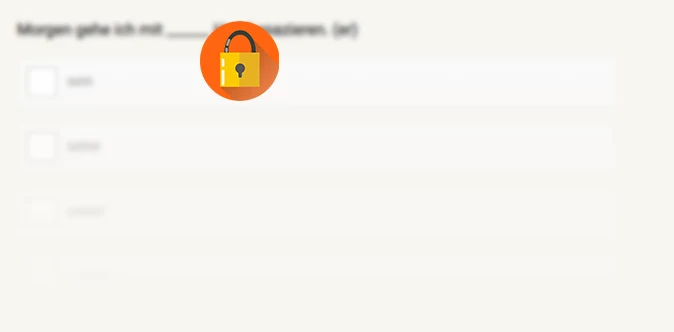
For DMM members only. You can sign up for free or make a voluntary monthly donation.
